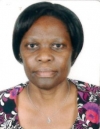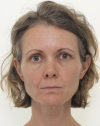ELIZABETH ASIGE
ID:
|
THE IMPACT AND COST-EFFECTIVENESS OF A COMMUNITY-BASED
PROGRAM FOR CHILDREN WITH CEREBRAL PALSY AND THEIR CAREGIVERS AND
THE STAKEHOLDERS IN UGANDA.
REFNo: HS1979ES
1. To examine the impact of a community-based program on children with CP reported frequency of participation in the home, school, and community activities.
2. To assess the impact of a community-based training program on improving caregiver knowledge regarding CP and reducing caregiver stress.
3. To determine the impact of a communication and advocacy program in broadening stakeholders’ knowledge, attitude and practices regarding childhood disability and inclusion.
4. To determine the cost-effectiveness of a community-based program on children with CP, their caregivers, and the stakeholders in relation to costs and benefits.
|
Iganga, Iganga
Mayuge, Mayuge
|
Uganda |
2023-04-20 21:15:22 |
2026-04-20 |
100 participants- 50 in the study group and 50 in the control group |
The study population will comprise children and youth with cerebral palsy aged 2-22 years, both male and female, and their primary caregivers of any tribe living in the study communities plus the community stakeholders |
Prof. Hans Forssberg -Karolinska Institutet Astrid Lindgren Children’s Hospital 17176, Stockholm Sweden |
Medical and Health Sciences |
Clinical Trial |
Degree Award |

|
Beatrice Onyango Ekesa
ID:
|
Bio-efficacy of Pro-Vitamin A-rich banana to improve vitamin A status among children in Uganda living in an area with a high burden of inflammation
REFNo: HS2721ES
3. Establish the stability of retinol isotopes on DSS at room temperature in the determination of TBS of vitamin A.,2. Assess the effect of inflammation and nutritional status on vitamin A absorption and TBS assessment among school-aged Ugandan children.,1. Determine the bio-efficacy of carotenoids in Pro-Vitamin A rich bananas in improving TBS in children aged 6-14years.,This study will determine the bio-efficacy of carotenoids in Pro-Vitamin A-rich banana-based diets and their potential in improving the vitamin A body stores by the RID technique among school-going children aged 6-14years living in Tororo district, an area with a high burden of inflammation.,
|
Tororo, Aturukuk
|
Kenya |
2023-04-19 12:44:24 |
2026-04-19 |
110 |
The study will be conducted among school going children aged 6-14 years because the school setting facilitates the feeding trial and monitoring, and the age group forms the youngest group available in an organised setting that can easily be engaged for a long period. In addition, this age group is not involved in the current national vitamin A supplementation programs. |
International Atomic Energy Agency (IAEA) |
Medical and Health Sciences |
Clinical Trial |
Non-degree Award |

|
Pontiano Kaleebu
ID: UNCST-2020-R019901
|
Field Evaluation of National HIV Testing Services Algorithm
REFNo: HS2701ES
Main Objective
To determine the appropriate HIV rapid test algorithm to be used in Uganda considering the new kits on the market.
Specific objectives
1. To assess specificity, sensitivity, negative predictive value (NPV), positive predictive value (PPV) of the rapid HIV tests on the market in Uganda and come up with best RDT algorithm.
2. To identify an algorithm that will best identify acute HIV infections
3. To determine the inter-observer and inter-lab agreement in HIV diagnosis using evaluated RDTs.
|
Gulu, Lacor hospital
Mbarara, Mbarara hospital
Tororo, AIC and TASO
Central Region, UVRI CLINIC
|
Uganda |
2023-04-12 15:44:58 |
2026-04-12 |
3500 |
Adults aged 18 years and above who would have come for an HIV test |
The Global Fund |
Medical and Health Sciences |
Clinical Trial |
Non-degree Award |

|
Francis Ssali
ID: UNCST-2021-R012134
|
Protocol A5394: “Safety, Tolerability, and Impact of Oral TLR8 Agonist Selgantolimod on HBsAg in Participants with both Chronic Hepatitis B and HIV” Version 1.0, May 27, 2022
REFNo: HS2647ES
1.2 Primary Objectives
1.2.1 To assess the safety and tolerability of treatment with SLGN administered once weekly by mouth for 24 weeks.
1.2.2 To determine the proportion of participants with ≥1 log10 IU/mL decline in quantitative HBsAg (qHBsAg) after SLGN treatment at Week 24.
1.3 Secondary Objectives
1.3.1 To determine the proportion of participants with ≥1 log10 IU/mL decline in qHBsAg at any time during the study after SLGN treatment initiation.
1.3.2 To determine the proportion of participants with ≥0.5 log10 IU/mL decline in qHBsAg after SLGN treatment at Week 24.
1.3.3 To determine the proportion of participants with ≥0.5 log10 IU/mL decline in qHBsAg at any time during the study after SLGN treatment initiation.
1.3.4 To evaluate the proportion of participants who achieve HBsAg loss after SLGN initiation and who sustain HBsAg loss during follow-up.
1.3.5 To evaluate changes in qHBsAg levels at Weeks 4, 12, 24, 36, and 48 after SLGN initiation and, separately, among the placebo recipients.
1.3.6 To determine the proportion of HBeAg positive participants at baseline who lose HBeAg at any time during the study, by study arm.
1.3.7 To determine the proportion of anti-HBe negative participants at baseline who develop anti-HBe at any time during the study, by study arm.
1.3.8 To determine the proportion of hepatitis B surface antibody (anti-HBs) negative participants at baseline who develop anti-HBs at any time during the study, by study arm.
1.3.9 To evaluate levels of circulating cytokines, including IFN-gamma, IL-12p40, IL-1RA, and CD163 at entry, 24 hours post-first study drug dose, Weeks 4, 12, 24, 36, and 48, by study arm.
1.3.10 To determine whether administration of SLGN will perturb HIV latency as measured by an increase in HIV transcription.
1.3.11 To determine whether administration of SLGN will decrease the size of the latent reservoir, as measured by the change in amount of cell-associated unspliced HIV RNA, HIV DNA, replication-competent and/or intact virus at Weeks 2, 4, 24, and 48.
1.4 Exploratory Objectives
1.4.1 To define the pharmacokinetic (PK) profile and PK-pharmacodynamic (PD) associations of SLGN in people with both HIV and CHB taking suppressive antiviral therapy for both viruses.
1.4.2 To explore if SLGN and antiretroviral (ARV) PK are altered when administered together.
1.4.3 To evaluate participants’ adherence by using several tools, including self-report, directly observed therapy (DOT), and drug concentrations.
1.4.4 To compare quantitative changes in experimental measures of HBV antiviral efficacy (including HBV RNA, hepatitis B core related antigen [HBcrAg], qHBeAg, and low positive HBsAg measured with a high sensitivity qHBsAg assay [LLOQ of 0.05 IU/mL]) and measure changes in large, medium, and small HBsAg isoforms from baseline during and after treatment.
1.4.5 To determine the immunological effects of SLGN on circulating immune signaling by performing single cell RNA sequencing using peripheral blood mononuclear cells (PBMCs) and evaluating HIV-specific T-cell responses.
1.4.6 To determine the effects on circulating immune cells, including cellular phenotypes and T and B-cell responses.
1.4.7 To determine whether administration of SLGN will affect levels of circulating cytokines, including TNF-alpha, IL-12, IL18, IP-10, ISG15, IL-21, Fas Ligand, and TRAIL.
|
Kampala, Seguku
|
Uganda |
2023-04-12 14:38:49 |
2026-04-12 |
The total sample size will be 48 participants (36 active and 12 placebo). Up to 6 additional participants may be enrolled if replacements are needed for key analyses. |
Participants with both (1) HIV and chronic hepatitis B (CHB) on suppressive effective antiviral therapy for HIV (ART) and HBV for ≥5 years immediately prior to study entry and (2) screening quantitative hepatitis B surface antigen (qHBsAg) >1000 IU/mL, and without evidence of advanced liver fibrosis or cirrhosis. Enrollment of women (female sex assigned at birth) is encouraged, and the study will set an enrollment goal of at least 14 women. The study is expected to enroll participants in North America, South America, Africa, and Asia. For the first 9 months, enrollment will be capped at 24 participants at US sites and 24 participants at non-US sites. After 9 months, enrollment will be open to all sites without regional caps
The total sample size will be 48 participants (36 active and 12 placebo). Up to 6 additional participants may be enrolled if r
eplacements are needed for key analyses.
There are no Uganda specific differences.
|
National Institute of Allergy and Infectious Diseases, Gilead Sciences, Inc. |
Medical and Health Sciences |
Clinical Trial |
Non-degree Award |

|
Bruce Kirenga J
ID: UNCST-2019-R001460
|
A multiple arm, multiple stage (MAMS), phase 2B/C, open label, randomized, controlled platform trial to evaluate experimental arms including an increased dose of rifampicin, an optimized dose of pyrazinamide, moxifloxacin and sutezolid, in adult subjects with newly diagnosed, smear-positive pulmonary tuberculosis
REFNo: HS2644ES
Primary Efficacy Objective:
Rifampicin- containing experimental arms (arms 1,2)
To evaluate whether one or more of two experimental regimens based on
optimized dose rifampicin, optimized dose of pyrazinamide, and moxifloxacin
given for 12, respectively 17 weeks, are superior to standard treatment given for
26 weeks, as assessed by time to sputum culture conversion to negative in liquid
media.
Sutezolid-containing experimental arm (arm 4)
To evaluate whether the efficacy of an experimental regimen composed of
sutezolid, delamanid, bedaquiline, and moxifloxacin given for 17 weeks is
superior to standard treatment given for 26 weeks, as assessed by time to
sputum culture conversion to negative in liquid media.
Secondary Objectives This study’s secondary objectives are:
Efficacy
To assess treatment efficacy based on proportion of patients with relapse
free outcome at 12 months after randomization.
To assess treatment efficacy based on the rate of decline of bacterial load
measured by the Molecular Bacterial Load Assay
To rank the relative efficacy of the experimental four-drug combinations
for the treatment of pulmonary tuberculosis within the first twelve weeks
of treatment, and select the most efficient experimental treatment
regimen or regimens for further development.
Safety and Tolerability
To assess the frequency, severity, and type of adverse events (AEs), and AErelated
treatment discontinuations.
Pharmacokinetics
To describe the pharmacokinetics of the drugs and doses used, and to assess
possible relationships between pharmacokinetic parameters of the various drugs and between pharmacokinetic parameters and participant characteristics.
Pharmacodynamics To describe relationships between pharmacokinetic parameters on the one hand and efficacy and safety endpoints on the other hand.
|
Kampala, Kawempe
|
Uganda |
2023-04-11 15:27:11 |
2026-04-11 |
360 Adults |
A total of up to 360 adult (≥ 18 years of age) participants will be enrolled.
In case of a high number of dropouts or non‐evaluable participants, it may be
necessary to recruit more participants into the study.
Also, if the stage 2 starts later than stage 1, it will be necessary to increase the
number of control arm participants to achieve a 1:1 ratio of concomitantly
recruited control and arm 4 participants (see sample size considerations).
Both males and females regardless of tribe as long as an ICF of that particular language spoken by the participant is available, will be enrolled. |
LMU Klinikum Marchioninistr. 15, 81377 Munich Germany |
Medical and Health Sciences |
Clinical Trial |
Non-degree Award |
.jpg)
|
Brenda Kakayi Catherine
ID: UNCST-2022-R008787
|
Insulin-like Growth Factor/Growth Hormone Levels and Stunting in HIV Exposed Uninfected Children from the 1077BF/P1084s study (CHASE: Changes in IGF/Hormone Axis and Stunting in HIV-Exposed uninfected children.
REFNo: HS2686ES
1. To investigate IGF-1, IGFBP-1, and IGFBP-3 as predictors of growth faltering/stunting in the first 2 years of life in HEU children
2. To describe the concentrations of hormonal growth factors in infants in relation to infant growth percentile at birth, 26 weeks, and 74 weeks of age.
|
|
Uganda |
2023-04-03 20:41:44 |
2026-04-03 |
Samples from approximately 154 participants from the P1084s study |
Samples of approximately 154 P1084s HEU children with serum specimens available at birth, week 26, and week 74 will have assays done on stored specimens for IGF-1, IGFBP-1, and IGFBP-3 at these time points. The 154 participants will be randomly selected from the 268 participants from Uganda, Malawi and South Africa that were enrolled in the study. The samples for use will be from both male and female participants. |
DAIDS-IMPAACT Network |
Medical and Health Sciences |
Clinical Trial |
Non-degree Award |

|
JOSELYN RWEBEMBERA
ID: UNCST-2021-R013915
|
Intramuscular vs. Enteral Penicillin Prophylaxis to Prevent Progression of Latent Rheumatic Heart Disease: A non-inferiority randomized trial. (GOALIE)
REFNo: HS2659ES
Primary Objective:
To compare the proportion of children aged 5-17 years with latent RHD receiving oral penicillin prophylaxis who progress to worse valvular disease at 2-years compared to children who receive IM penicillin prophylaxis.
|
Lira, Adyel
|
Uganda |
2023-03-24 2:23:26 |
2026-03-24 |
1004 |
Age group = 5-17
Sex not specified.
Tribe not specified. |
National Institute of Health |
Medical and Health Sciences |
Clinical Trial |
Non-degree Award |

|
Victoria Ndyanabangi
ID: UNCST-2021-R012645
|
IMPAACT 2036: Phase I/II Study of the Safety, Tolerability,Acceptability, and Pharmacokinetics of Oral and Long-ActingInjectable Cabotegravir and Rilpivirine in Virologically SuppressedChildren Living with HIV-1, Two to Less Than 12 Years of Age, DAIDSStudy ID #38932 IND # 138754
REFNo: HS2688ES
To propose the weight band dosing of oral cabotegravir (CAB) + oral rilpivirine (RPV)followed by long-acting injectable CAB (CAB LA) + long-acting injectable RPV (RPV LA)in children living with HIV-1, and to describe participant choice and experience with theregimen with or without an oral lead-in period.
To describe the repeat-dose pharmacokinetics of CAB + RPV (oral and injectable)through Week 24
To assess the safety of the oral lead-in of CAB + RPV, and the safety of CAB + RPV (oraland injectable) through Week 24
To assess the safety of CAB + RPV (oral and injectable) through Weeks 48 and 72
To describe the repeat-dose pharmacokinetics of injectable CAB LA + RPV LA throughWeeks 48 and 72
To assess the maintenance of viral suppression of CAB + RPV (oral and injectable)through Weeks 24, 48, and 72
To evaluate the tolerability and acceptability of injectable CAB LA + RPV LA throughWeeks 24, 48, and 72
To describe HIV-1 genotypes and phenotypes for children who experience virologicfailure during study treatment
To assess immunologic activity of CAB + RPV (oral and injectable) through Weeks 24,48, and 72
To describe tolerability and acceptability of 48 weeks of CAB + RPV (oral and injectable)and 44 weeks of CAB LA + RPV LA (injectable only)
To describe the safety and repeat-dose pharmacokinetics of 48 weeks of CAB + RPV(oral and injectable) or 44 weeks of CAB LA + RPV LA (injectable only)
To describe the maintenance of viral suppression and immunologic activity of 48 weeks ofCAB + RPV (oral and injectable) or 44 weeks of CAB LA + RPV LA (injectable only)
To describe HIV-1 genotypes and phenotypes for children who experience virologicfailure during 48 weeks of CAB + RPV (oral and injectable) or during 44 weeks of CABLA + RPV LA (injectable only)
To characterize long-term safety and washout PK through 48 weeks after permanentdiscontinuation of injectable CAB LA + RPV LAV LA
To characterize PK of CAB + RPV oral formulations when dispersed in liquid vs. directly ingested (Weight Bands 3, 4 and 5)
|
Kampala, Mulago
|
Uganda |
2023-03-16 12:55:20 |
2026-03-16 |
35 |
Children living with HIV-1, two years to less than 12 years of age and weighing ≥10 kg and <40 kg, who are Virologically suppressed on stable antiretroviral therapy and their parents/caregivers. Proposed the weight band dosing of oral cabotegravir (CAB) + oral rilpivirine (RPV) followed by long-acting injectable CAB (CAB LA) + long-acting injectable RPV (RPV LA) in children living with HIV-1, and to describe participant choice and experience with the regimen with or without an oral lead-in period. |
National Institute of Allergy and Infectious Diseases (NIAID) |
Medical and Health Sciences |
Clinical Trial |
Non-degree Award |

|
Peter Elyanu James
ID: UNCST-2021-R013210
|
GS-US-380-1474: A Phase 2/3, Open-Label Study of the Pharmacokinetics, Safety, and Antiviral Activity of the GS-9883/Emtricitabine/Tenofovir Alafenamide (GS-9883/F/TAF) Fixed Dose Combination (FDC) in HIV-1 Infected Adolescents and Children
REFNo: HS2708ES
This is a multisite, multi-cohort study that aims to recruit subjects in four weight-based cohorts (i.e. Cohort 1, 2, 3 and 4), with each cohort having specific objectives aligned with it. Baylor Uganda site will recruit subjects in cohort 4 with is further subdivided in 4 weight-based sub-groups. The study objectives in relation to the Cohort 4 are as follows;
Cohort 4
Group 1:
The primary objective of this study is:
• To evaluate the safety and tolerability of B/F/TAF 30/120/15 mg (administration of 2 B/F/TAF 15/60/7.5 mg FDC TOS) once daily through Week 24 in HIV-1 infected, virologically suppressed children ≥ 2 years of age weighing ≥ 14 to < 25 kg who are unable to swallow tablets
The secondary objectives of this study are:
• To evaluate the safety and tolerability of B/F/TAF 30/120/15 mg (administration of 2 B/F/TAF 15/60/7.5 mg FDC TOS) once daily through Week 48 in HIV-1 infected, virologically suppressed children ≥ 2 years of age weighing ≥ 14 to < 25 kg who are unable to swallow tablets
• To evaluate the antiviral activity of B/F/TAF 30/120/15 mg (administration of 2 B/F/TAF 15/60/7.5 mg FDC TOS) once daily through Weeks 24 and 48 in HIV-1 infected, virologically suppressed children ≥ 2 years of age weighing ≥ 14 to < 25 kg who are unable to swallow tablets
Group 2:
The primary objectives of this study are:
• To evaluate the steady state PK of BIC and TAF and confirm the dose of B/F/TAF 7.5/30/3.75 mg (administration of 2 B/F/TAF 3.75/15/1.88 mg FDC TOS) twice daily in HIV-1 infected children ≥ 1 month of age, on ARV treatment or treatment naive, weighing ≥ 10 to < 14 kg
• To evaluate the safety and tolerability of B/F/TAF 7.5/30/3.75 mg (administration of 2 B/F/TAF 3.75/15/1.88 mg FDC TOS) twice daily through Week 24 in HIV-1 infected children ≥ 1 month of age, on ARV treatment or treatment naive, weighing ≥ 10 to < 14 kg
The secondary objectives of this study are:
• To evaluate the safety and tolerability of B/F/TAF 7.5/30/3.75 mg (administration of 2 B/F/TAF 3.75/15/1.88 mg FDC TOS) twice daily through Week 48 in HIV-1 infected children ≥ 1 month of age, on ARV treatment or treatment naive, weighing ≥ 10 to < 14 kg
• To evaluate the antiviral activity of B/F/TAF 7.5/30/3.75 mg (administration of 2 B/F/TAF 3.75/15/1.88 mg FDC TOS) twice daily through Weeks 24 and 48 in HIV-1 infected children ≥ 1 month of age, on ARV treatment or treatment naive, weighing ≥ 10 to < 14 kg.
Group 3:
The primary objectives of this study are:
• To evaluate the steady state PK of BIC and TAF and confirm the dose of B/F/TAF 3.75/15/1.88 mg (administration of 1 B/F/TAF 3.75/15/1.88 mg FDC TOS) twice daily in HIV-1 infected children ≥ 1 month of age, on ARV treatment or treatment naive, weighing ≥ 6 to < 10 kg
• To evaluate the safety and tolerability of B/F/TAF 3.75/15/1.88 mg (administration of 1 B/F/TAF 3.75/15/1.88 mg FDC TOS) twice daily through Week 24 in HIV-1 infected children ≥ 1 month of age, on ARV treatment or treatment naive, weighing ≥ 6 to < 10 kg.
The secondary objectives of this study are:
• To evaluate the safety and tolerability of B/F/TAF 3.75/15/1.88 mg (administration of 1 B/F/TAF 3.75/15/1.88 mg FDC TOS) twice daily through Week 48 in HIV-1 infected children ≥ 1 month of age, on ARV treatment or treatment naive, weighing ≥ 6 to < 10 kg
• To evaluate the antiviral activity of B/F/TAF 3.75/15/1.88 mg (administration of 1 × B/F/TAF 3.75/15/1.88 mg FDC TOS) twice daily through Weeks 24 and 48 in HIV-1 infected children ≥ 1 month of age, on ARV treatment or treatment naive, weighing ≥ 6 to < 10 kg.
Group 4:
The primary objectives of this study are:
• To evaluate the steady state PK of BIC and TAF and confirm the dose of B/F/TAF 1.88/7.5/0.94 mg (administration of 1 B/F/TAF 1.88/7.5/0.94 mg FDC TOS) twice daily in HIV-1 infected children ≥ 1 month of age, on ARV treatment or treatment naive, weighing ≥ 3 to < 6 kg.
• To evaluate the safety and tolerability of B/F/TAF 1.88/7.5/0.94 mg (administration of 1 B/F/TAF 1.88/7.5/0.94 mg FDC TOS) twice daily through Week 24 in HIV-1 infected children ≥ 1 month of age, on ARV treatment or treatment naive, weighing ≥ 3 to < 6 kg
The secondary objectives of this study are:
• To evaluate the safety and tolerability of B/F/TAF 1.88/7.5/0.94 mg (administration of 1 B/F/TAF 1.88/7.5/0.94 mg FDC TOS) twice daily through Week 48 in HIV-1 infected children ≥ 1 month of age, on ARV treatment or treatment naive, weighing ≥ 3 to < 6 kg
• To evaluate the antiviral activity of B/F/TAF 1.88/7.5/0.94 mg (administration of 1 B/F/TAF 1.88/7.5/0.94 mg FDC TOS) twice daily through Weeks 24 and 48 in HIV-1 infected children ≥ 1 month of age, on ARV treatment or treatment naive, weighing ≥ 3 to < 6 kg
|
Kampala, Mulago
|
Uganda |
2023-03-16 12:47:17 |
2026-03-16 |
10 |
4.1 Selection of the Study Population
Approximately 170 pediatric subjects ≥ 1 month to < 18 years of age are planned to be enrolled into the entire study. However, 50 child subjects shall be recruited as follows for Cohort 4 across all participating sites; at least 8 evaluable subjects ≥ 2 years of age weighing ≥ 14 to < 25 kg and at least 42 evaluable subjects ≥ 1 month of age weighing ≥ 3 to < 14 kg are planned to be enrolled. Baylor Uganda site however, plans to recruit a total of 10 children in cohort 4 (i.e. 3 children in each of the groups 1, 2 and 3 and 1 child in group 1). In addition, replacement subjects may be enrolled for subjects whose Intensive PK data are not evaluable or who do not complete all Intensive PK procedures in Groups 2, 3, and 4 of Cohort 4.
4.2 Inclusion Criteria
Subjects must meet all of the following inclusion criteria to be eligible for participation in this study.
a) Age ≥ 1 month to < 18 years (according to requirements of enrolling Cohort)
b) Parent or legal guardian able to provide written informed consent prior to any screening evaluations and willing to comply with study requirements.
c) Body weight at screening for Cohort 4:
• Group 1: ≥ 14 to < 25 kg (≥ 31 to < 55 lbs)
• Group 2: ≥ 10 to < 14 kg (≥ 22 to < 31 lbs)
• Group 3: ≥ 6 to < 10 kg (≥ 13 to < 22 lbs)
• Group 4: ≥ 3 to < 6 kg (≥ 6.6 to < 13 lbs)
d) Confirmed HIV infection if < 18 months of age (positive nucleic acid-based test result to be provided).
e) Adequate renal function:
• Estimated Glomerular Filtration Rate (eGFR) ≥ 90 mL/min/1.73 m2 (≥ 1.5 mL/sec/1.73 m2) for children ≥ 1 year of age using the Schwartz Formula.
• Adequate renal function: eGFR ≥ the minimum normal values for age for children < 1 year of age using the Schwartz Formula.
o Schwartz formula (mL/min/1.73 m2) = k × L/SCr where k is a proportionality constant, L is height in centimetres (cm) and SCr is serum creatinine (mg/dL). The value of k is 0.45 for children < 1 year old, 0.55 for children ≥ 1 to < 12 years old and adolescent girls ≥ 12 years old and 0.70 for adolescent boys (≥ 12 years old).
f) Stable ARV regimen:
• Stable ARV regimen of 2 NRTIs in combination with a third agent for a minimum of 6 months prior to the screening visit. Subjects undergoing dose modifications to their ARV regimen for growth or who are switching medication formulation(s) are considered to be on a stable ARV regimen (Cohort 4 Group 1).
• Stable ARV treatment of 2 NRTIs in combination with a third agent for a minimum of 1 month prior to the screening visit or treatment naive (Cohort 4 Groups 2, 3, and 4 only) (patient is considered treatment naive if ARVs were given for prevention of mother-to-child transmission only and not for HIV treatment)
g) Plasma HIV-1 RNA: < 50 copies/mL at the screening visit (Cohort 4 Group 1). No threshold for HIV RNA levels for Cohort 4 Groups 2, 3, and 4.
h) Life expectancy ≥ 1 year.
i) Have no documented or suspected resistance to FTC, TFV, or INSTIs including, but not limited to, the reverse transcriptase resistance mutation K65R. Subjects with M184V/I AND HIV-1 RNA < 50 copies/mL may be enrolled in Cohort 4. Subjects in Cohort 4 with HIV-1 RNA > 50 copies/mL shall have documentation of no FTC, TFV, or INSTI resistance by plasma testing at screening (> 200 copies/mL) or historical genotype (if > 50 copies/mL but < 200 copies/mL).
j) Care taker(s) must be willing and able to comply with all study requirements.
4.3 Exclusion Criteria
Subjects who meet any of the following exclusion criteria are not to be enrolled in this study.
a) Cohort 4 Group 1: CD4 cell count < 200 cells/ mm3. Cohort 4 Groups 2, 3, and 4: CD4 cell count < 750 cells/mm3 for ≥1 to <12 months of age and < 500 cells/mm3 for ≥12 to <24 months of age.
b) An opportunistic illness indicative of stage 3 HIV diagnosed within the 30 days prior to screening.
c) An ongoing serious infection requiring systemic antibiotic therapy at the time of screening
d) Evidence of active pulmonary or extra-pulmonary tuberculosis within 3 months
e) Acute hepatitis in the 30 days prior to study entry
f) Hepatitis B virus (HBV) surface antigen (HBsAg) positive
g) Hepatitis C virus (HCV) antibody positive with detectable HCV RNA. Children < 18 months of age born to an HCV positive mother and/or HCV antibody positive will need to have 2 negative HCV RNA tests 6 months apart with the first test occurring no earlier than 2 months of age. In this situation, the earliest such a patient can be screened for study eligibility is at 8 months of age.
h) Have any serious or active medical or psychiatric illness which, in the opinion of the Investigator, would interfere with subject treatment, assessment, or compliance with the protocol. This would include uncontrolled renal, cardiac, haematological, hepatic, pulmonary (including chronic asthma), endocrine (e.g., diabetes), central nervous, gastrointestinal (including an ulcer), vascular, metabolic (thyroid disorders, adrenal disease), immunodeficiency disorders, active infection, or malignancy that are clinically significant or requiring treatment within 30 days prior to Day 1.
i) Subjects experiencing decompensated cirrhosis (eg, ascites, encephalopathy)
j) A history of or ongoing malignancy other than cutaneous Kaposi’s sarcoma (KS), basal cell carcinoma, or resected, non-invasive cutaneous squamous carcinoma. Subjects with biopsy-confirmed cutaneous KS are eligible, but must not have received any systemic therapy for KS within 30 days of Day 1 and are not anticipated to require systemic therapy during the study.
k) ≤ 2 months of age and gestational age (GA) ≤ 37 weeks (Cohort 4 Groups 2, 3, and 4)
l) Current alcohol or substance abuse (by parent/caretaker) judged by the Investigator to potentially interfere with subject compliance
m) Have history of significant drug sensitivity or drug allergy
n) Known hypersensitivity to the IMP, the metabolites, or formulation excipients.
o) Participation in any other clinical trial, including observational studies without prior approval from sponsor is prohibited while participating in this trial.
p) Cohort 4 Groups 2, 3, and 4: Last dose of nevirapine (NVP) or efavirenz (EFV), if applicable, ≥ 14 days prior to enrolment
q) Subjects receiving ongoing therapy with any medication that is not to be taken with the study drug. Administration of any of the following medications must be discontinued at least 30 days prior to the Day 1 visit and for the duration of the study, with the exception of the subject’s prior ARV treatment regimen, which must be continued until their scheduled Day 1 visit
|
Gilead Sciences, Inc. 333 Lakeside Drive Foster City, CA 94404 |
Medical and Health Sciences |
Clinical Trial |
Non-degree Award |

|
Adoke Yeka
ID: UNCST-2021-R004300
|
Phase IIa Proof of Concept, Multicenter, Randomized, Open-label Study to Evaluate the Safety, Efficacy, and Pharmacokinetics of the Combination M5717 plus Pyronaridine Administered once Daily for 1 or 2 Days to Adults and Adolescents with Acute Uncomplicated Plasmodium falciparum Malaria
REFNo: HS2736ES
To evaluate the safety and
tolerability of the M5717-
pyronaridine combination in
adult participants with acute
uncomplicated malaria due to
P. falciparum.
Secondary.
o describe the clinical efficacy
of the M5717-pyronaridine
combination in adult participants
with acute uncomplicated
malaria due to P. falciparum
|
Tororo, Central
|
Uganda |
2023-03-16 12:35:56 |
2026-03-16 |
200 |
Participants Are ≥ 12 and ≤ 55 years of age (≥ 18 and ≤ 55 years of age for
Part A) at the time of signing the informed consent.
Type of Participant
and Disease
Characteristics:
2. Microscopic confirmation of acute uncomplicated
P. falciparum using Giemsa-stained thick and thin film.
3. P. falciparum parasitemia of ≥ 1,000 to ≤ 50,000 asexual
parasites/µL of blood in Part A and P. falciparum parasitemia
of > 1,000 to ≤ 150,000 asexual parasites/µL of blood in Part B.
4. Axillary temperature ≥ 37.5ºC or tympanic temperature
≥ 38.0ºC (use as per COVID-19 protocols at the site [only at
Screening]), or history of fever during the previous 24 hours (at
least documented verbally).
Weight: 5. Have a body weight ≥ 24 kg |
Merck Healthcare KGaA, Darmstadt, Germany an affiliate of Merck KGaA, Darmstadt, Germany Frankfurter Str. 250 64293, Darmstadt, Germany |
Medical and Health Sciences |
Clinical Trial |
Non-degree Award |

|
Flavia Matovu Kiweewa
ID: UNCST-2021-R013337
|
A Phase 2/3, Multicenter, Open-label, Multicohort Study Evaluating Pharmacokinetics (PK), Safety, and Efficacy of Cobicistat-boosted Atazanavir (ATV/co) or Cobicistat-boosted Darunavir (DRV/co) and Emtricitabine/Tenofovir Alafenamide (F/TAF) in HIV-1 Infected, Virologically Suppressed Pediatric Participants.
REFNo: HS2646ES
The primary objective of this study is to confirm the dose of ATV/co or DRV/co in HIV-1 infected pediatric participants, to confirm the dose of F/TAF in HIV-1 infected pediatric participants and to evaluate the safety and tolerability these medications.
|
Mityana, Mityana
Mubende, Mubende
Masaka, Masaka
Rakai, Kalisizo
Kampala, Kampala
Wakiso, Entebbe
|
Uganda |
2023-03-09 23:33:04 |
2026-03-09 |
15 |
The study will be conducted in young children and adolescents aged 3 to < 18 years; HIV-1 infected on a stable antiretroviral regimen for a minimum of 3 months. In Uganda, the study will be conducted by researchers from the coordinating site, MU-JHU Research Collaboration, MU-JHU CARE – Kampala, Uganda, in collaboration with Africa Medical and Behavioral Sciences Organization (AMBSO) – Kampala and SICRA-TASO MULAGO National Referral Hospital, Masaka, Uganda. |
Gilead Sciences Inc |
Medical and Health Sciences |
Clinical Trial |
Non-degree Award |

|
Raymond Tweheyo
ID: UNCST-2020-R014507
|
Understanding the effect of varied financial compensation structure for improving the performance, motivation and retention of Community Health Workers in Uganda - a quasi experiment
REFNo: HS2689ES
General objective: To understand the effect of varied financial compensation structure for improving the performance, motivation and retention of Community Health Workers in Uganda.
Specific objectives:
1. To determine the optimal performance based financial incentive incentive's structure required for improving the performance, motivation and retention of CHWs.
2. To explore the acceptability and perceptions of potential sustainability of CHWs financial compensation structure to various stakeholders, including the CHWs, and the CHW supervisors at the district and Ministry of Health.
3. To explore the perceived value and impact of financial incentives on CHW's job satisfaction, personal income and livelihood.
|
Wakiso, all parishes
Mpigi, all parishes
Mbale, all parishes
Jinja, all parishes
|
UK |
2023-03-07 10:40:31 |
2026-03-07 |
3,215 children under five, 720 Community Health Workers, 32 Key Informants |
1. Women of reproductive age (18 to 49 years) who have a child under five years of age.
2. Community Health Workers (18 years and above)
3. Adult Key Informants - district, Ministry of Health and Implementing Partner officials |
USAID/ Living Goods |
Medical and Health Sciences |
Clinical Trial |
Non-degree Award |

|
Rachel Brathwaite
ID:
|
Assessing the Feasibility of Economic Approaches to Prevention of Substance
Abuse among Adolescents
REFNo: HS2683ES
Aim 1. Examine the prevalence and consequences of ADU in a cohort of 200 AYLHIV (ages 18-24) seen at six (6) HIV clinics in southwestern Uganda.
Aim 2. Using a mixed methods approach, identify the multi-level (individual, interpersonal, community and structural) factors associated with ADU among AYLHIV.
Aim 3. Using a subset of the sample, explore the feasibility and short-term effects of a family-based economic empowerment intervention on ADU among AYLHIV.
|
Masaka,
|
Trinidad and Tobago |
2023-03-02 15:32:31 |
2026-03-02 |
230 |
220 Adolescents and youths living with HIV aged 18-24 years. 10 healthcare providers aged >18 years. |
National Institute on Alcohol Abuse and Alcoholism |
Medical and Health Sciences |
Clinical Trial |
Non-degree Award |

|
Harriet Mayanja-Kizza
ID: UNCST-2021-R013074
|
PHASE 2C CLINICAL TRIAL OF NOVEL, SHORT-COURSE REGIMENS FOR THE TREATMENT OF PULMONARY TUBERCULOSIS:
CRUSH-TB (Combination Regimens for Shortening TB Treatment)
REFNo: HS2650ES
Primary objective
(1) To compare the efficacy of each experimental regimen to the efficacy of standard treatment, using the intermediate endpoint of time to culture negative in liquid media.
Secondary objectives
(1) To compare the proportion of participants with a grade 3 or higher adverse event in each experimental arm with the control arm
(2) To describe the proportion of participants experiencing lack of sustained cure during treatment or follow-up to 52 weeks in each experimental arm as compared to control and make predictions as to how these regimens would perform in future phase III trials.
(3) To compare the efficacy of each experimental regimen to the efficacy of standard treatment, using the intermediate endpoint of time to culture negative in solid media
(4) To compare the proportion of participants in each arm who convert liquid and solid sputum cultures to negative by (a) 8 weeks of treatment and (b) 12 weeks of treatment
(5) To describe the rate of all-cause study drug discontinuation in each arm
(6) To compare time to sputum culture positivity curves through 17 weeks in the Mycobacterial Growth Indicator Tube (Bactec MGIT960) across arms
(7) To describe the proportion of participants experiencing lack of sustained cure during treatment or follow-up up to 78 weeks in each experimental arm as compared to control and make predictions as to how these regimens would perform in future phase III trials.
(8) To describe the population PK of bedaquiline and its M2 metabolite, with or without rifabutin co-administration (PK#1)
(9) To conduct pharmacokinetic/pharmacodynamics study of the test drugs to determine relationships between pharmacokinetic parameters (AUC, Cmax) and outcome measures (time to culture negativity or rate of change in TTP) using non-linear mixed effects models, adjusting for key covariates that may affect outcomes (e.g. companion drugs, HIV status, cavitary disease) (PK#2)
|
Kampala, Mulago
|
Uganda |
2023-02-21 13:13:53 |
2026-02-21 |
288 overall, 100 in Uganda |
This will be a multisite international study. Male and female participants who are age 12 or older and have suspected or proven pulmonary tuberculosis will be enrolled into the study.
Enrollment will be open to all TBTC sites willing to participate and who have completed trial start-up requirements.
Target enrollment is at least 288 participants (96 participants per arm).
Pregnant or breast-feeding individuals will be excluded from the study because of uncertainties about the safety of bedaquiline, delamanid, and moxifloxacin in these groups. The sex, ethnicity, and socioeconomic background of study participants are expected to mirror those of the populations served by local tuberculosis clinics and the populations most affected by tuberculosis worldwide.
Co-enrollment in other therapeutic clinical trials is not allowed.
|
U.S. Centers for Disease Control and Prevention |
Medical and Health Sciences |
Clinical Trial |
Non-degree Award |

|
Wietse Tol
ID: UNCST-2021-R013085
|
AlCohol use in HumanitariAN settings: a programme of work to address alcohol use disorders and associated adversities among conflict-affected populations in UGanda and UkrainE (CHANGE)
REFNo: SS1596ES
• To identify strategies and techniques from evidence-based alcohol use therapies which can be integrated into PM+, and to develop a new intervention called PM+A (Problem Management Plus Alcohol)
• To adapt PM+A to local circumstances, and to examine the feasibility, acceptability, perceived effectiveness, and preliminary impact of PM+A
• To evaluate effectiveness and cost-effectiveness of PM+A through two single-blind randomised controlled trials in Uganda and Ukraine
• To explore the process of implementation, and to identify, characterise and explain mechanisms that promote or inhibit the delivery and take-up of PM+A in both settings
• To examine the potential for scaling-up PM+A in Uganda and Ukraine
|
Arua, Ofua zone Rhino Camp
|
Netherlands |
2023-02-17 12:18:30 |
2026-02-17 |
60 |
Adult South Sudanese men (>18 years) who meet all the following criteria.;
Alcohol Use Disorder Identification Test (AUDIT) score 8-19 (Saunders et al., 1993)
2) Elevated levels of psychological distress (Kessler Psychological Distress Scale (ten item version) (K10 >6) (Kessler et al., 2002)
|
Wellcome Trust and the Department of Health and Social Care, through the National Institute for Health Research |
Social Science and Humanities |
Clinical Trial |
Non-degree Award |
.jpg)
|
Maxensia owor
ID: UNCST-2021-R014003
|
IMPAACT 2036: Phase I/II Study of the Safety, Tolerability, Acceptability, and Pharmacokinetics of Oral and Long-Acting Injectable Cabotegravir and Rilpivirine in Virologically Suppressed Children Living with HIV-1, Two to Less Than 12 Years of Age. Version 1.0, 22 September 2022. DAIDS study protocol ID: 38932
REFNo: HS2599ES
iii. Cohort 2: To describe the maintenance of viral suppression and immunologic activity of 48 weeks of CAB + RPV (oral and injectable) or 44 weeks of CAB LA + RPV LA (injectable only),iv. Cohort 2: To describe HIV-1 genotypes and phenotypes for children who experience virologic failure during 48 weeks of CAB + RPV (oral and injectable) or during 44 weeks of CAB LA + RPV LA (injectable only),ii. Cohort Cohort 2: To describe the safety and repeat-dose pharmacokinetics of 48 weeks of CAB + RPV (oral and injectable) or 44 weeks of CAB LA + RPV LA (injectable only),i. Cohort 2: To describe tolerability and acceptability of 48 weeks of CAB + RPV (oral and injectable) and 44 weeks of CAB LA + RPV LA (injectable only),ii Cohort 1: To assess the safety of the oral lead-in of CAB + RPV, and the safety of CAB + RPV (oral and injectable) through Week 24,i.Cohort 1: To describe the repeat-dose pharmacokinetics of CAB + RPV (oral and injectable) through Week 24,
|
Kampala, all parishes
Wakiso, all parishes
|
Uganda |
2023-02-13 11:10:13 |
2026-02-13 |
90 children and 90 parents/ caregivers worldwide but MUJHU plans to enroll 5 -15 children and 5-15 parents/ caregivers. |
Children living with HIV-1, two years to less than 12 years of age
and weighing ≥10 kg and <40 kg, who are virologically suppressed on
stable antiretroviral therapy and their parents/caregivers.
|
DAIDS/NIH |
Medical and Health Sciences |
Clinical Trial |
Non-degree Award |

|
Winnie Muyindike R
ID: UNCST-2021-R013558
|
A Randomized Clinical Trial to Evaluate Solutions for the Management of Virologic Failure for Individuals on TLD in Sub-Saharan Africa.(RESOLVE)
REFNo: HS2620ES
Aim 2: Use simulation modeling to examine the clinical impact, costs, and cost-effectiveness of strategies to improve viral suppression after virologic failure on TLD. We will populate the previously validated Cost-Effectiveness of Preventing AIDS Complications-International (CEPAC-I) model with the novel clinical trial data from Aim 1 to project long-term clinical outcomes and cumulative lifetime costs. We will then compare the cost-effectiveness of the three strategies evaluated in Aim 1 for addressing virologic failure among people treated with first-line TLD in Uganda or South Africa. ,Aim 1: Conduct a randomized clinical trial to determine the optimal strategy for management of virologic failure on first-line TLD in SSA. We will recruit 648 adolescents and adults with two viral loads >1,000 copies/mL while on first-line TLD for at least 12 months, who are in care at one of six public-sector HIV clinics in Uganda or South Africa. We will randomize participants to one of the following strategies, stratified by clinic and prior NNRTI-exposure: a) Maintenance on TLD with switch to protease inhibitor (PI)-based second-line ART if virologic failure persists past six months; b) Individualized Care, with regimen choice based on results of genotypic resistance tests and urine tenofovir assays; or c) Immediate Switch to PI-based second-line ART. The primary outcome will be viral suppression (<50 copies/mL) at 48 weeks post-enrollment using the FDA snapshot definition. We hypothesize that rates of viral suppression at 48 weeks will be higher in the Individualized Care arm than in the Maintenance on TLD and Immediate Switch arms.,
|
Mbarara, Kamukuzi
Mbarara, Kakoba
|
Uganda |
2023-02-09 11:06:56 |
2026-02-09 |
324 |
15 years and above, female and male wo are on TLD irrespective of tribe |
National Institutes of Health |
Medical and Health Sciences |
Clinical Trial |
Non-degree Award |

|
Afiz Kibuuka Kibuuka
ID: UNCST-2021-R012755
|
A Phase 3, multicenter, randomized, double-blind, 24-week study of the clinical and
antiviral effect of S-217622 compared with placebo in non-hospitalized participants with
COVID-19
REFNo: HS2642ES
The main intent of the study is to evaluate the efficacy of S-217622 vs. placebo. The study will be conducted in the setting of the locally available standard-of-care COVID-19 treatment. High-risk and low-risk participants will be analyzed together for the primary analysis and separately for secondary analyses. The following primary, secondary, and exploratory objectives will be addressed in the modified intent-to-treat (mITT) population, except for the safety analyses, which will be analyzed in the Safety population, and pharmacokinetic (PK) analyses, which will be analyzed in the PK population.
|
Tororo, All Parishes
|
Uganda |
2023-02-06 17:17:04 |
2026-02-06 |
Each site in Uganda will (through competitive enrolment) enroll at least 8 participants making a total of 32 participants for all Uganda sites. |
Outpatient adults (≥18 years) with: a) documented positive
SARS-CoV-2 nucleic acid or antigen test from a sample
collected ≤120 hours (5 days) prior to randomization, b) onset
of symptoms of COVID-19 ≤5 days prior to randomization,
c) presence of 1 or more select COVID-19 symptoms within
24 hours prior to randomization. Participants will be eligible
regardless of vaccination status and will be classified as either
high risk or low risk.
High-risk participants: defined as aged ≥65 years or those with
presence of high-risk conditions.
|
National Institute of Allergy and Infectious Diseases (NIH), Division of AIDS (DAIDS) |
Medical and Health Sciences |
Clinical Trial |
Non-degree Award |

|
Noella Okalany Akwi Regina
ID: UNCST-2022-R011085
|
Congenital Cytomegalovirus Infection in Eastern Uganda
REFNo: HS2668ES
To determine the short-term neurodevelopmental outcomes and hearing impairment associated with congenital cytomegalovirus among infants in Eastern Uganda.,To determine the incidence of, and risk factors for postnatally acquired cytomegalovirus among infants in Eastern Uganda.,To describe the factors associated with congenital cytomegalovirus infection in neonates in Eastern Uganda.,To determine the prevalence of congenital cytomegalovirus infection among neonates in Eastern Uganda,To investigate the burden of congenital cytomegalovirus and its outcomes among infants in Eastern Uganda.,
|
Mbale, Mbale
Budaka, Budaka
|
Uganda |
2023-02-06 16:21:08 |
2026-02-06 |
2000 |
0 - 6 months of age |
University of Liverpool |
Medical and Health Sciences |
Clinical Trial |
Degree Award |

|
Kathy Burgoine
ID: UNCST-2022-R011521
|
Impact of prophylactic Continuous Positive Airway Pressure in the Delivery Room (DR-CPAP) on neonates <1500g in a low-resource setting: A feasibility trial
REFNo: HS2605ES
- To determine the acceptability of DR-CPAP to healthcare workers in a low-resource setting
- To determine the post-intervention acceptability of using a two-stage consent process in neonatal emergencies in the delivery room in this setting
- To evaluate the feasibility of a third-party allocation process for randomisation by determining the time to randomization
- To evaluate feasibility of initiating DR-CPAP in a low-resource setting in infants with birthweight 800-1500g within 15 minutes of delivery
- To determine the safety of initiating DR-CPAP in a low-resource setting
- To estimate the sample size to be used for future evaluation in the full trial
- To assess the feasibility of secondary outcome measures to be used in the full trial
|
Mbale,
|
UK |
2023-02-02 12:18:23 |
2026-02-02 |
100 |
The study population will be inborn preterm infants with a birthweight of 800g to less than 1500g who are spontaneously breathing at 5 minutes of life. They will be recruited within 15 minutes of birth and followed up until death or 28 days. Both male and female infants will be included. |
Mbale Clinical Research Institute (MCRI) |
Medical and Health Sciences |
Clinical Trial |
Non-degree Award |

|
| View |
|
Sort By: |
|
|
|
| |
|











